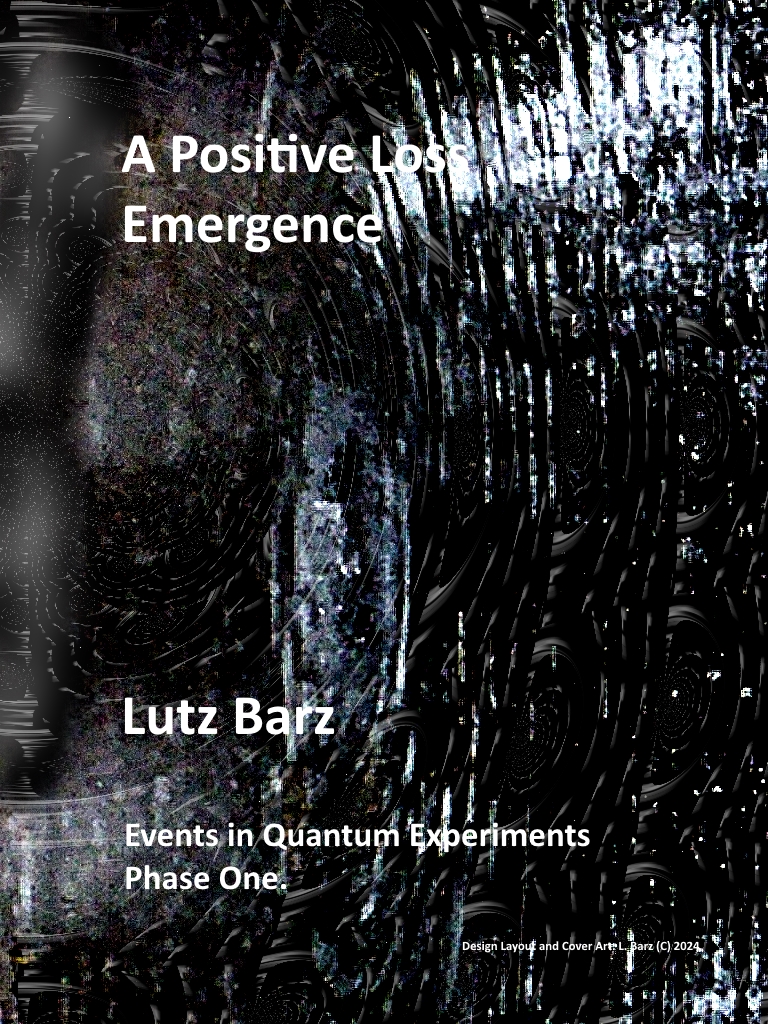A POSITIVE LOSS EMERGENCE is a science fiction epic about a protagonist named Crystel who has clones made out of her in a laboratory. It is largely written in a stream-of-consciousness style, but exposition and plot are unclear.
Author Lutz Barz is deeply engrossed in the vagaries of quantum mechanics, but (for all the interesting ideas flying around) struggles to get a solid grasp of characterization or plot development. Moreover, terms are bandied about that are peculiar to the world in which Crystel lives, and so require definitions, but never receive them. “Shadow Casters,” “Satellite Surveyors,” and an organization called the Kommantura are all mentioned at one point or another in the book, but they are never heard from again, left unexplained, or both. The most egregious instance, “machineHead” [sic], occurs many times, and seems to be an integral idea. While alert readers may make educated guesses as to its meaning—this reviewer reckoned it to be a slang name for sentient entities, perhaps powered by AI—the fact that it’s never explained does not speak well to an awareness of the audience’s need for clarity. Perhaps the impenetrable nature of all this is an intentional feature—it would explain the unnatural dialogue, such as “That persuaded me to follow whither my lead. No psychotronics detected. Given I sometimes considered myself somewhat mentally liminal helped to detect weak signals if close enough”—but given the other issues in the narrative, it’s doubtful. Random plays on words do not help; it’s not clear to the reader whether Alimaxine is the same character as Almaxine, or indeed Alimaxi, who is introduced into the narrative two-thirds of the way through with the sentence, “Alimaxi, Almaxi, Allmaxed was out for now.” This wordplay comes at the expense of clarity. It seems a high price to pay to indulge one’s fascination with the sound of names.
Nor does the prose style hit the mark. Its abbreviated sound is at times almost Joycean, but for every striking line in that vein—“All so physiological. Avoid to think of pathy or pathological” has a sonorous feel to it—there are a dozen more that are arcane, arrhythmic, or just plain bad. Moreover, the book has not been line-edited, and there are multiple formatting, mechanical, and grammatical errors of various types.
One feels there is the kernel of a good story here, but Barz overreaches in presenting it in almost 600 pages of this format. Sufficient exposition, a more straightforward writing style, and less reliance on technobabble would be a necessary first step in increasing the readability of this interesting but deeply flawed work.
Lutz Barz’s A POSITIVE LOSS EMERGENCE contains some interesting ideas, but it struggles to get its point across due to issues of structure and style.
~Craig Jones for IndieReader

